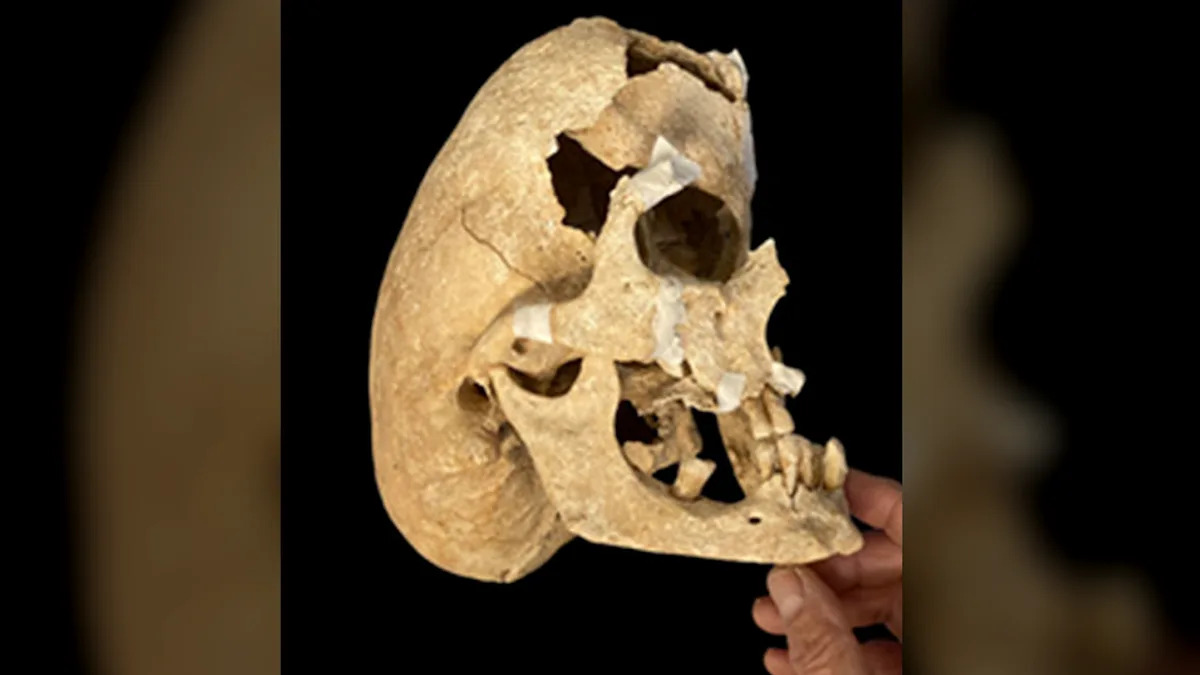Home / Science / Medieval Warrior's Skull Baffles Archaeologists
Medieval Warrior's Skull Baffles Archaeologists
26 Nov
Summary
- A medieval knight's skeleton had two head stab wounds and a bashed knee.
- His unusually long skull suggests a rare childhood genetic condition.
- The knight survived into adulthood despite a condition usually fatal in youth.

During excavations at a medieval cemetery in Spain, archaeologists discovered the skeletal remains of a knight. This individual exhibited clear signs of a life of conflict, with two stab wounds to the head and a severely injured knee. However, the most astonishing feature was the knight's unusually elongated skull, a characteristic that baffled researchers. This malformation strongly suggests a rare genetic condition.
Further analysis revealed that three cranial sutures had fused prematurely, a condition known as craniosynostosis. This condition often proves fatal in infancy or childhood due to its impact on brain development. While modern medicine can surgically correct craniosynostosis, such interventions were unavailable during the medieval period.
The survival of this knight into his mid- to late 40s with such a condition is extraordinary. Researchers hypothesize he may have had Crouzon syndrome, though further genetic testing is needed for confirmation. This discovery highlights remarkable resilience and challenges perceptions of medical capabilities in the Middle Ages.



